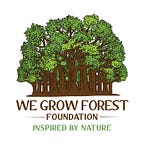LET’S RAISE THE BLUE FLAG FLYING HIGH
“REVITALIZATION: COLLECTIVE ACTION FOR THE OCEAN” THEME FOR WORLD OCEAN DAY 2022
Everyone loves to enjoy a peaceful evening on the beach. The warm sunlight on your face, feeling the sand under your feet, and the soothing sound of ocean waves crashing onto the beach.
Some beaches are more preferred over others. It may be because of various reasons. Some are much clearer, have more facilities, water sports, etc.
But the scenario is different now!
If you go to a beach almost anyplace in the globe, you’ll see signs of humankind washed up all over the place. Balloons, cigarette butts, and plastic fragments are widespread on all beaches.
In order to address the problem of marine pollution, the implementation of solutions through community participation is much required in this era. Clean-up drives, environmental education and awareness are the first steps toward this.
The following steps are easy to implement if proper education and awareness are given to society. Because the source behind every littering activity is because lack of awareness about the environment they live in.
WORLD OCEAN DAY JUNE 8
So what can be done now? What can we do in addition to environmental education and awareness?
Yes! We have a lot more to do! We are discussing here mainly what we can do to make our shorelines healthy and safe. And it is the journey to attaining the Blue flag, the Golden Standard for Beach.
Have you heard about Blue-flag before? Do you know why it is important?
Let’s discuss it!
Blue Flag Certification, or the blue flag tag, is one of the most recognised eco-labels given to beaches. The beaches that have been given this certification will have some of the best tourist-friendly facilities and infrastructures.
Blue flag certifications are awarded to beaches, marinas and also boat owners who are operating in a sustainable manner. This tag is being awarded by a Denmark-based non-profit organisation called the Foundation for Environmental Education (FEE). The Blue Flag recognition is awarded by a jury comprising members from the IUCN, UNWTO, UNEP, and UNESCO after considering 33 parameters. In freshwater and marine environments, the Blue Flag Program encourages sustainable development. It promotes municipal governments and beach vendors to maintain good standards.
The concept of a “World Oceans Day” had first been proposed on June 8, 1992, at the Rio de Janeiro Earth Summit as a way to celebrate our planet’s shared ocean and our sense of connectedness to the sea, as well as to raise public awareness about the critical role the ocean plays in our lives and the significant ways people can help protect it. The United Nations officially adopted it 16 years later, in 2008. This is an international day to preserve our planet’s seas and the species that live in them. According to the UN, human-caused carbon emissions are causing ocean warming, acidification, and oxygen loss. World Oceans Day underlines the importance of oceans in our lives and the need to protect them from degradation. Recent plastic waste in the oceans has raised questions and prompted global governments to take action. Existing cities and communities along the world’s coastline are only now beginning to consider the magnitude and consequences of sea level rise. Many people are becoming increasingly aware that the repercussions will not only be severe in the short term but also devastating in the long term.
For a beach to achieve this recognition, four main categories have to be taken into consideration:
1. Safety
The beach should be safe to enter for the visitors. There should be a dedicated swinging area with an adequate number of lifeguards who are qualified for the same.
2. Water Quality
The water at the beach should be clean with no presence of E-coli. There should not be the disposal of any industrial effluent into the sea near where the people are entering the water.
3. Environmental Education
Providing environmental education to the locals and the people visiting the beach is essential to spread the message and create a sense of ownership among the community. Awareness sections to the public should be provided to compact the rising pollution levels. Billboards and other installations could be made on the beach to share about the local ecosystems, the local flora and fauna, etc.
4. Environmental Management
A local beach management committee should be formed to maintain the beach. They should be responsible for maintaining and protecting any ecologically sensitive areas near the beach.
Sustainable Tourism and the Blue Flag
The blue flag certification also gives importance to sustainable tourism. This will also help improve the local communities by generating income resources for tourism and other related activities.
Currently, India has ten beaches that hold the blue flag certification; among those, Kappad beach is the only beach from Kerala to achieve it. They have developed infrastructure facilities like jogging tracks, benches for visitors, drinking water facilities etc. A committee has implemented responsibility for maintaining and cleaning the beach.
The clean shoreline initiative by we grow forest foundation is a movement to fight against marine littering and pollution. The initiative is currently trying to develop the veli tourist village. The initial phase of this has started in the form of clean-up drives. The project also aims to achieve the golden standard for the veli beach- the Blue Flag certification.
By focusing on achieving Blue Flag, we aim to make veli beach the healthiest beach and promote sustainable tourism. We have initiated our mission to bring Blue Flag to the Veli beach, and we will spread this mission across the coastal lines of India.
To know more about We Grow Forest Foundation please visit our website https://wegrowforest.org/ or contact us at on 9778411911 or email at us plant@wegrowforest.org
